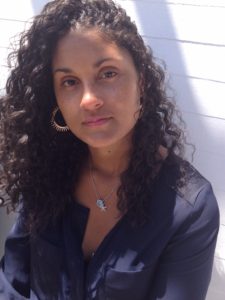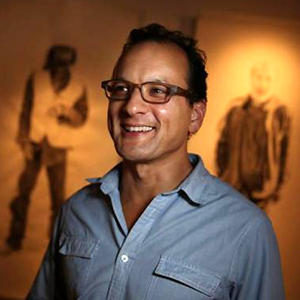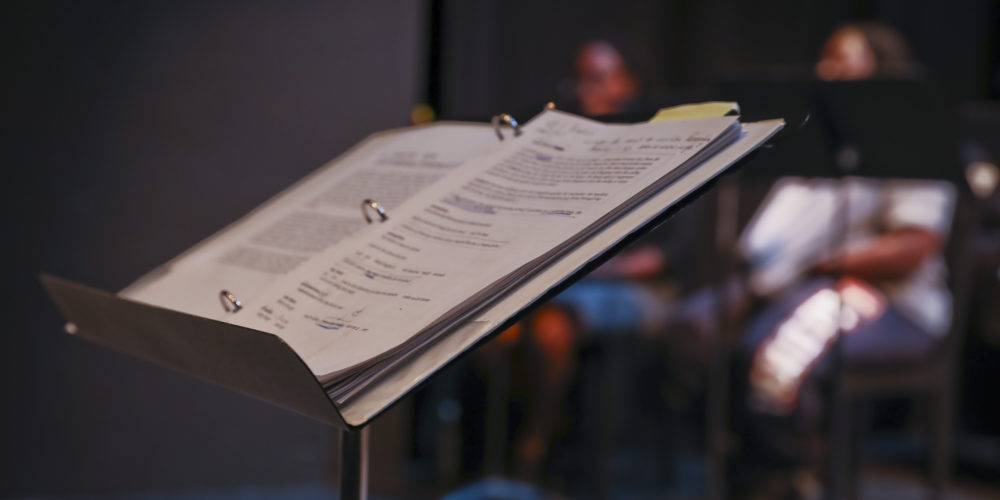07 Feb Resident Playwright Star Finch Artist Talk
A chat with Side Effects playwright
Star Finch
On Monday and Tuesday next week (February 10 & 11) we have a chance to hear Star Finch’s newest piece Side Effects as it travels back to 2009 to interrogate the present as it relates to the American Dream, gentrification, and the marijuana industry.
Want to hear Side Effects? Reserve your Pay What You Can seat now.
When did you write your first play? What was it about & how do you feel about it now?
The first play I ever wrote was a series of interconnected shorts in grad school. But I would say that my first traditional full length play was Gold Mountain. I wrote it after auditing a workshop with Michelle Carter who was my advisor turned mentor. The play was basically a way for me to channel my feelings of fury and powerlessness against the rising tide of gentrification in San Francisco. It was similar to Side Effects in that it involved a character returning to their city/neighborhood and feeling alienated, but Gold Mountain was much more rigid in its approach. I wasn’t too interested in nuance or grace; my perspective was uncompromising and unforgiving.
Gold Mountain holds a special place in my heart because it was my ticket into becoming part of Campo Santo’s “Clika” writing lab. It was also my first play to receive a public reading thanks to Sean San Jose. The reading was at the old Intersection for the Arts space on Mission Street. All my friends came out to support me, some brought me flowers, and there was an insightful talkback afterwards. I just remember experiencing a warm glow beneath my skin and the sensation of floating down the sidewalk back to my car because (finally) the whole playwright thing felt real. Having that reading was my greatest accomplishment at the time and I was excited by the potential of what was still to come–my future felt wide open.
So from that point on I made a conscious choice to write the majority, if not all, of my roles for women and in the process began to move closer to the center of my authentic voice.
Do you have an established writing process or do you approach each project differently?
– I always keep various notebooks to write down anything that inspires me or magically downloads into my brain. It could be a song, a line in a movie, a conversation, an outline for a character— it all goes into a notebook. I think of it as making a deposit into my creative savings account. Those deposits inevitably build into a downpayment on a play.
What has been your most ambitious undertaking as an artist?
That said, I have even bigger and more ambitious visions of things I’d like to do in my trusty notebooks—so I’m hoping that Shipping & Handling will help propel me toward the resources to manifest my ideas that sound overly ambitious if not impossible in the present moment.
What was your catalyst for writing Side Effects?
The one-two punch of gentrification and the medical marijuana industry were an initial catalyst in terms of how they mirror each other in taking over space marked dangerous/criminal and reclaiming it to great profit. I also wanted to tell a story about San Francisco that captures how tension and exclusion have always been woven into its reputation for being liberal and diverse. Plus my own ideas about what it means to “make it” and the value in chasing the American Dream have shifted over the years, so I was interested in revisiting some of the themes contained within Gold Mountain, but from a place of meditation and interrogation rather than vengeance.
What are you hoping to learn from Side Effects appearing in the Rough Reading Series?
I haven’t heard this latest draft yet so I’ll be listening for whether the changes I’ve made over the last 6 months are aligned with my intentions. I’m curious to see how the various characters are received and how the new ending lands in relation to who the audience feels most connected with.
What do you want audiences to take away from your work?
I want my work to follow an audience back home and into their dreams that night. I want people who’ve seen my work to wake up thinking about my characters the next morning. I LOVE when a play/movie/book moves me to the degree that I feel temporarily possessed by it—-like I have to take a couple days to digest it through multiple systems in order to move on from it. So my intention is always to upend my audience in a way that will stimulate private moments of processing the work on their own time.
About Star Finch

Star Finch is a native San Franciscan trying her best to hold ground amidst the erasure of gentrification. She’s a member of Campo Santo Theater Company and a resident playwright at Playwrights Foundation. Her plays include H.O.M.E. [Hookers on Mars Eventually]and BONDAGE (Princess Grace Award semifinalist, Relentless Award honorable mention). She was also the lead writer on the collaborative performance piece Babylon is Burning, a loose adaptation of Jeff Chang’s Can’t Stop Won’t Stop; and on Death Become Life: Banish Darkness, a collaboration with AXIS Dance, Ensemble Mik Nawooj, and Crowded Fire Theater. Finch has also contributed to various collaborative projects including TheaterFirst’s PARTICIPANTS and Campo Santo’s ETHOS DE MASQUERADE. She’s held residencies in Crowded Fire’s R&D LAB and AlterTheater’s Alter Lab. She is a recipient of the San Francisco Arts Commission Individual Artist Commission in Theater.
About Sean San José

Sean San José is co-founder of Campo Santo, the award-winning resident theater company of San Francisco’s Intersection for the Arts. Program Director of Theatre for Intersection for the Arts, San José has helped create and curate a new program called the Hybrid Project, formed to bring together artists of all genres, merging differing and emerging styles of performance in order to find a new performance language. He has been awarded one of the Audrey Skirball-Kennis TIME Grant Awards to support the development of his new work. Productions he has conceived, created and produced have also garnered numerous awards in excellence, including; the Bay Area Reporter Best of the Season, Cable Car Award, DramaLogue and Bay Area Critics’ Circle Award.



No Comments